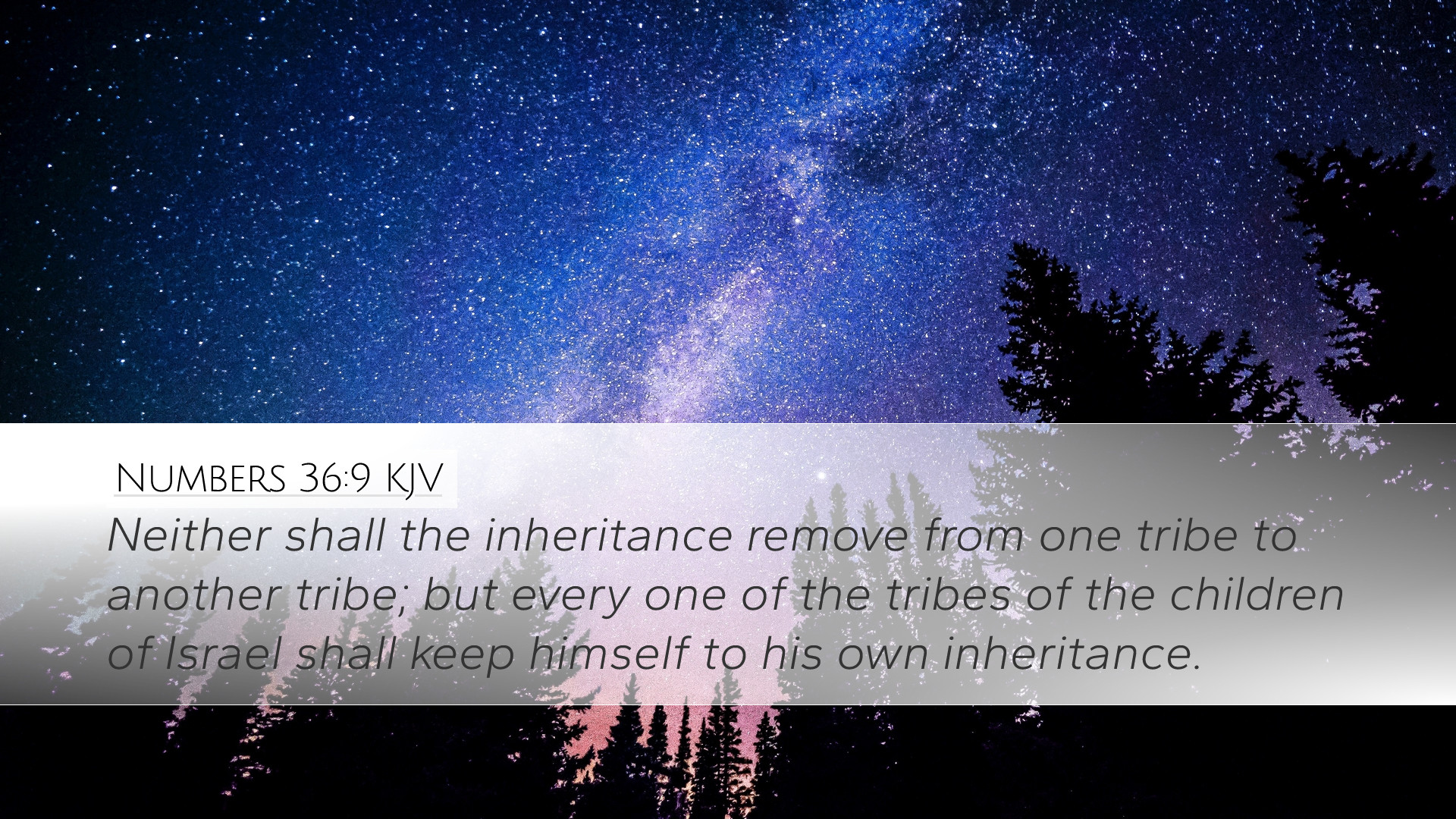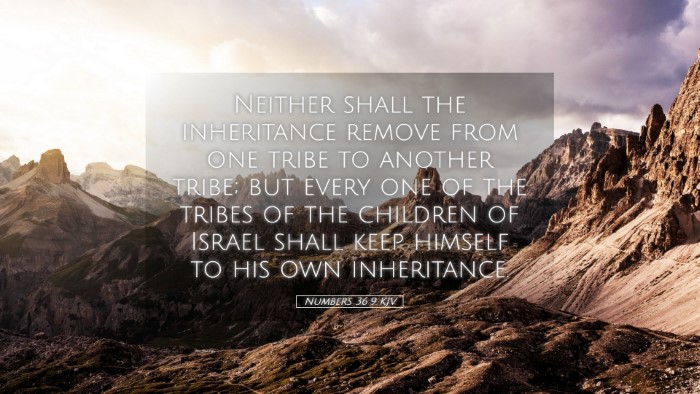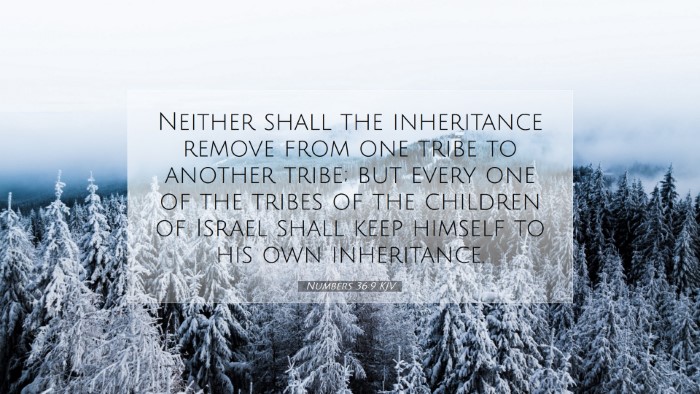Commentary on Numbers 36:9
Numbers 36:9 states: “So shall not the inheritance of the children of Israel remove from tribe to tribe: for every one of the children of Israel shall keep himself to the inheritance of the tribe of his fathers.” This verse serves as a concluding principle in the regulations concerning the inheritance of land among the Israelites and encapsulates significant theological and practical implications.
Contextual Background
The book of Numbers is primarily concerned with the organization of the Israelite community during their wandering in the wilderness. As the Israelites were poised to enter the Promised Land, critical instructions regarding their inheritance were necessitated. The allocation of land was not merely a practical matter; it was integral to their identity as God’s chosen people.
The Importance of Tribal Inheritance
This verse emphasizes the importance of tribal inheritance which was based on God’s covenant with the ancestors of the Israelites. The land was distributed according to tribes, reflecting God’s promise to Abraham, Isaac, and Jacob. Each tribe had specific geographical and spiritual significance, which cultivated their identity and encouraged a unity of purpose and faith.
Theological Insights
1. Divine Sovereignty in Inheritance
The pronouncement that “the inheritance of the children of Israel shall not remove from tribe to tribe” highlights God’s sovereignty. This principle shows that the division of land is not random or at the mercy of human actions, but rather a divine ordinance. This notion reinforces God’s continual involvement in the lives of the Israelites.
2. Preservation of Identity
By ensuring that each tribe retains its inheritance, God facilitates the preservation of cultural and familial identity. The inheritance represents not just land, but promises, history, and the blessings of God that are tied to the identity of each tribe. For pastors and theologians, this conveys the importance of heritage and the continuity of faith through generations.
3. Warning Against Discontent
The command against moving inheritance serves as a warning against discontent. In modern application, this highlights the dangers of envy and dissatisfaction that lead to divisions within the body of Christ. Each believer should value their own part in God’s kingdom and understand that every inheritance is blessed and purposeful.
Practical Applications
- Stewardship of Resources: Understanding our spiritual and material inheritances should propel believers toward wise stewardship as a reflection of God’s generosity.
- Unity in Diversity: Just as the tribes were distinct yet unified under one covenant, today’s church must embrace diversity while maintaining unity in Christ.
- Generational Responsibility: There exists a call for each generation to pass down the faith and traditions that comprise their inheritance, ensuring continuity and strength within the community of believers.
Insights from Commentators
Matthew Henry: Henry emphasizes that God’s purposes are unshakeable, and His allocations are to be respected. He notes the careful management of inheritance is a reflection of the stewardship expected from believers. The continuity of tribes serves not only as legal guidance but as an essential reminder of God’s providence over His people.
Albert Barnes: Barnes expounds that God’s laws were strict regarding inheritance to prevent the dilution of tribal identity. This preservation was essential for the socio-religious structure God intended. Barnes also points out that the restrictions are indicative of how God prioritizes order in His community and how this can be extrapolated to church governance today.
Adam Clarke: Clarke elaborates on the implications of tribal inheritance being fixed. He conveys that this edict implicitly encourages fidelity to one’s heritage and accountability within the community, challenging Christians to remain steadfast and rooted in their respective callings and roles. Clarke’s commentary suggests that such structure promotes a healthful relationship with God and among believers.
Conclusion
The instruction in Numbers 36:9 about the stability of inheritance is not merely an ancient legal framework; it encapsulates timeless principles relevant to contemporary faith practice. It reinforces divine sovereignty, the preservation of identity, and the importance of community unity, serving as a constructive guidepost for pastors, students, and scholars engaged in studying the dynamics of faith and community.


